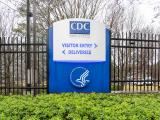Jun 8, 2010 (CIDRAP News) Prompted by congressional hearings into foodborne illness outbreaks and the state of the nation's food safety system, the Institute of Medicine (IOM) today released its report on the US Food and Drug Administration's role, saying the agency needs a clear path to a risk-based strategy that delegates more inspection duties to states.
A committee of food safety experts, working on behalf of the IOM, released its 492-page report at a briefing in Washington, DC. Dr Clyde Behney, the IOM's deputy executive director, said recent multistate outbreaks suggest gaps in the nation's food safety system, which is often too reactive and lacks a clear focus on prevention. The IOM is part of the National Academy of Sciences, a nongovernmental agency that provides independent advice to the US government.
The report comes soon after FDA officials created the Office of Foods to oversee and coordinate the agency's food policy activities and as sweeping food safety legislation that would give the FDA new powers languishes in the Senate after passing last year in the House. The document also comes in the wake of recent illness outbreaks tied to alfalfa sprouts and romaine lettuce.
The IOM suggests that the FDA adopt a risk-based strategy that includes strategic planning, ranking of public health risks, targeted data-gathering, analysis and selection of interventions, and review of FDA actions.
IOM committee members who spoke at today's briefing said one of the biggest gaps is lack of data, and that FDA officials have said data sharing among other government agencies that have a stake in food safety is difficult.
Dr J. Glenn Morris Jr., a committee member who is director of the Emerging Pathogens Institute at the University of Florida, Gainesville, said a risk-based system depends on good data. "You can't answer questions with the data you have now," he said, adding that the group envisions a central data hub or clearinghouse that could exist outside the FDA and would have a strong analytic capacity.
He said the risk-based approach is nothing new, but the group's report goes a step further by spelling out a blueprint. "Risk-based systems are like motherhood and apple pie, but what does it mean?" he said. "This report articulates what constitutes a risk-based system."
The committee wrote that food safety systems at the federal and state levels aren't well integrated and that some activities, such as inspections, are sometimes duplicated. They suggested that the FDA move toward, for example, setting standards for state and local officials to do the bulk of inspections. The group urged that the FDA's new Office of Foods assume direct authority over its inspectors, because the office has greater scientific expertise than the Office of Regulatory Affairs, which currently oversees all of the agency's inspectors.
Though they were not tasked with examining the resource requirements of their recommendations, they predicted that handing off more inspection duties to states would require more funding.
Committee chairman Dr Robert Wallace, professor in the College of Public Health at the University of Iowa, said that though the group wasn't in a position to endorse specific legislation, much of what the IOM report recommends is in pending legislation. "Having the legislative tools is part of this. Mandatory recall is a good examplewe want to see it in the law," he said.
The committee members didn't focus their recommendations on folding all federal food safety duties into a single agency. Morris said, "We were careful not to go too far with that discussion, because our target is the FDA."
Dr Jim O'Hara, director of the Produce Safety Project at Georgetown University in Washington, DC, told CIDRAP News that some of the suggestions in today's report have been echoed by other groups and in past IOM reports. He said the question is whether the Obama administration will give the FDA the resources it needs to continue the process. "It's time that we all walk the walk," said O'Hara, who worked at the FDA from 1993 to 1997 as its associate commissioner of public affairs.
He praised the committee members that put together the report as professionals who have all worked in the food safety trenches. "They're people who know what's possible and people who want to get results."
Caroline Smith DeWaal, food safety director for the Center for Science in the Public Interest, said in a statement today that the IOM report contains several strong recommendations for improving the FDA. She said the concept of a centralized risk-based analysis and data center resembles the European Food Safety Authority and praised the committee's view that the FDA needs a specially trained food safety inspection workforce, rather than a force that is also responsible for inspecting drugs and medical devices.
However, DeWaal critiqued the plan to hand off more inspections to state and local officials. She said the move would overburden the agencies and represents what she called a flawed model, pointing to problems with Georgia state inspections that came to light during the late 2008 Salmonella Typhimurium outbreak linked to peanuts. "One need only look to the Peanut Corporation of America for evidence that states are ill-equipped to provide the level of inspection required," she said.
Sen. Tom Harkin, D-Iowa, said in a statement today that the IOM report shows that gaps still exist in the nation's food safety system and that the Senate's bipartisan FDA Food Safety Modernization Act builds on the report's main recommendations. "The gaps in oversight that IOM has identified reinforce the need for the Senate to move on this legislation as soon as possible. And because this issue cannot wait, we hope to get the bill to the Senate floor this month," he said.
See also:
Jun 8 IOM FDA food safety report materials
Jun 8 CSPI statement
Jun 8 statement from Sen Tom Harkin

















